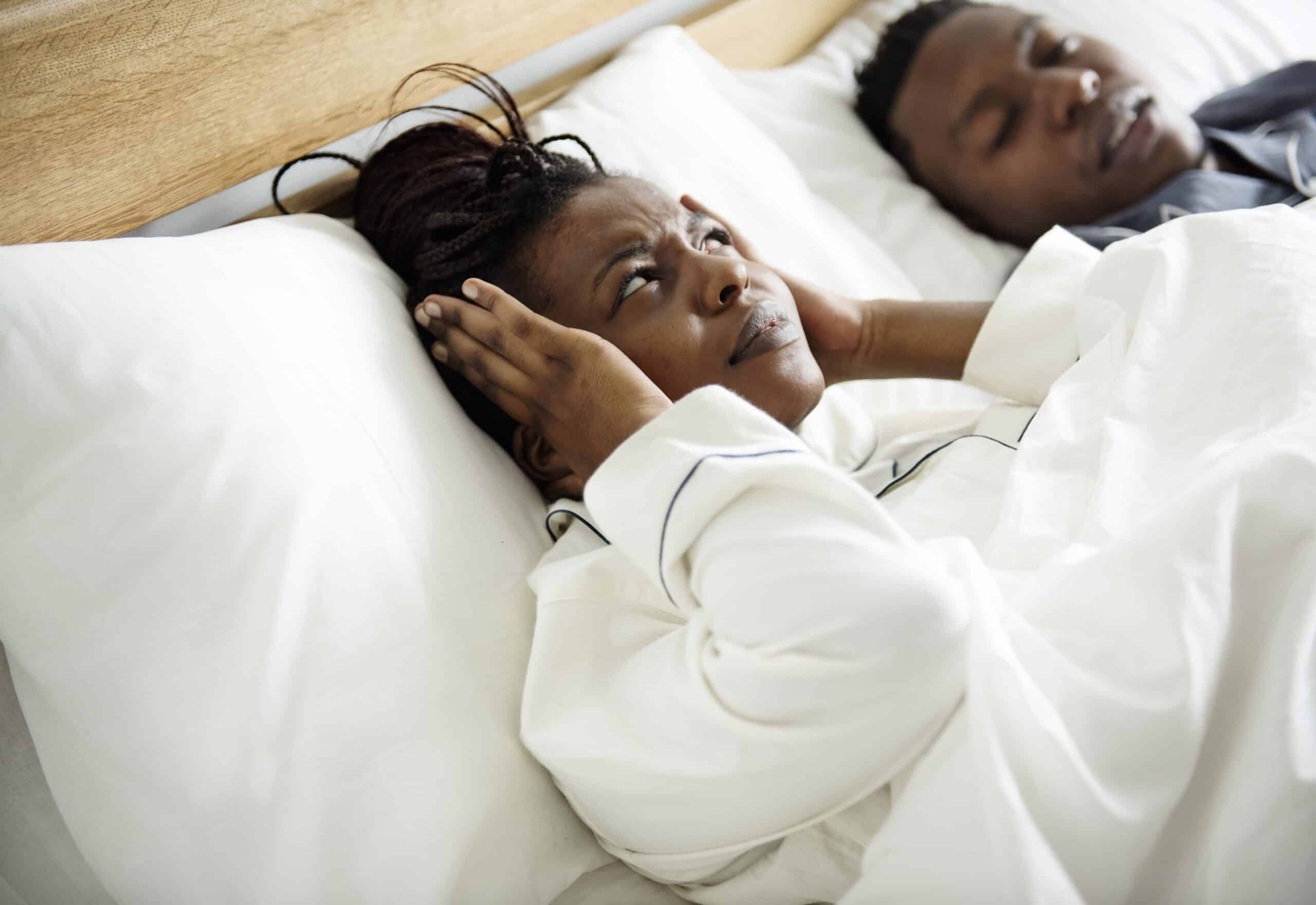Snoring isn’t taken as seriously as it should be. It can affect relationships and your health – so it’s well worth paying closer attention to your night-time noises!
Snoring is a very common condition that affects both men and women. Anyone who’s been on the receiving end of someone who snores, knows how disruptive it can be to a good night’s sleep. Snoring is LOUD! In fact, the loudest recorded snore is 87 decibels, which is louder than a vacuum cleaner, and almost as loud as a lawnmower. Snoring is particularly frustrating because the snorer is normally completely unaware of the problem. They continue to sleep soundly while anyone within earshot has a sleepless night.
Snoring isn’t taken as seriously as it should be. It can affect relationships and your health – so it’s well worth paying closer attention to your night-time noises. As well as being a problem for a sleeping partner, snoring can also be a warning sign of Obstructive Sleep Apnoea (OSA). OSA has some serious implications for your health, so it’s important to exclude this as the cause of your snoring before deciding on treatment.
How can snoring impact your health?
Not all snoring is dangerous, but if your snoring is related to sleep apnoea it can disrupt your sleep by causing fragmented sleep which can reduce its efficiency, increasing daytime drowsiness. This, in turn, increases the risk for car accidents and lowers physical activity, which itself is a risk factor for other health issues such as weight gain.
Sleep loss and sleep deprivation are directly linked with an increased risk of mental health issues including depression, physical health issues such as hypertension, coronary artery disease and stroke, diabetes and obesity.
Causes of snoring
When you go to sleep, the muscles at the back of your throat relax. When this happens, your airway can narrow or close as you breathe. With your airway partly blocked a vibration occurs and snoring results. Snoring can be made worse by sleeping on your back, having a narrow or blocked nose, or having a small lower jaw. Drinking alcohol (especially near bedtime) and certain medications, can contribute to snoring. Cigarette smoking, which can irritate the nose and throat, is often blamed too.
If the answer is yes to any of the following, your risk of OSA is increased:
- I snore loudly
- I feel sleepy or fall asleep during the day
- I’m told I make gasping or choking sounds while I sleep
- I’m told I stop breathing while I sleep
- I have high blood pressure
- I’m overweight
- I’m male
- I’m aged over 50
- I have a large neck size
Should I get my snoring checked out?
If you snore, you should see your GP to make sure you don’t have OSA. If your GP thinks your snoring may be a sign of obstructive sleep apnoea, you may be asked to undertake a sleep apnoea assessment.
How is OSA treated?
Treatments for Obstructive Sleep Apnoea often work for snoring too, even if you don’t have OSA. A SomnoMed Oral appliance provides one of the simplest treatments for either. Worn in your mouth while you sleep, a SomnoMed oral device moves your lower jaw forward to prevent your tongue and the soft tissue in your mouth falling back and blocking your airway while you sleep.


